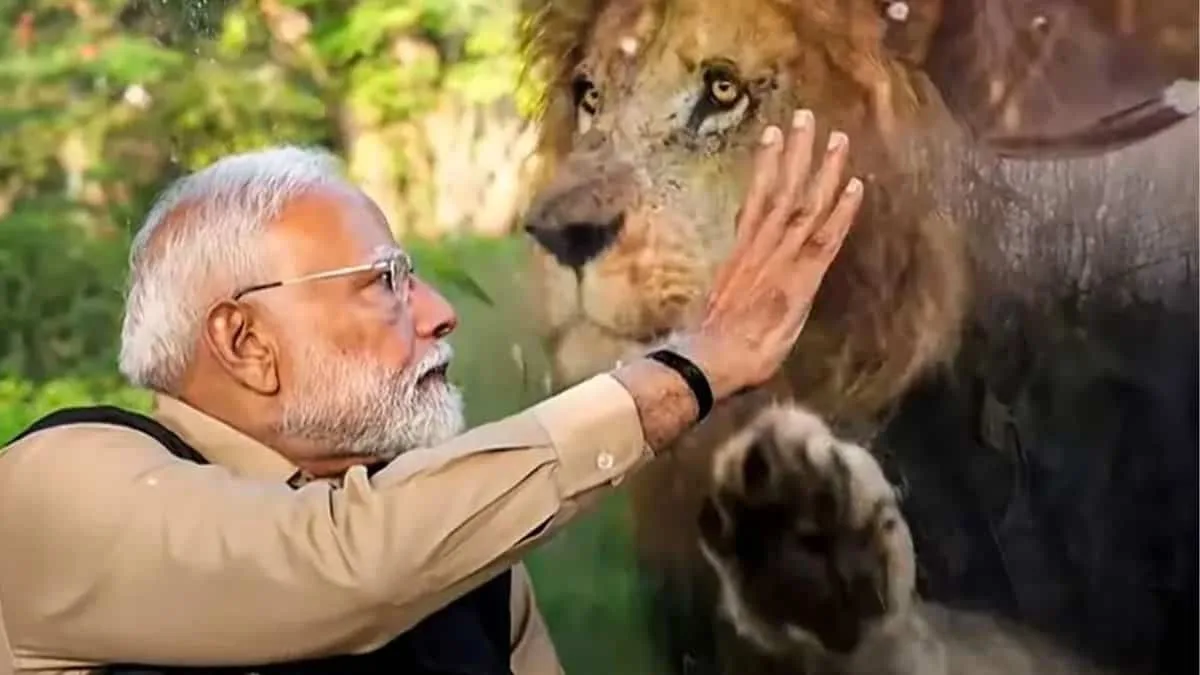Hyderabad: The Nehru Zoological Park’s decision to enable the visitors to take selfies and experience a closer experience of the white tigers in the zoo, which would potentially be expanded to other carnivores, is being seen as both positive and negative development.
Tigers and species of the cat family are highly sensitive to the flash of the cameras, and it has been scientifically proven that they eyes get irritated and in certain cases, their eyes also got damaged- that too in the wild.
The Chenchus of the Nallamala forest, who have been living and sharing a familial relationship with the tigers since time immemorial, know the effects better than anyone else.
Thokala Guruvaiah, a Chenchu leader from Appapur penta in Lingal mandal of Nagarkurnool district, narrates an incident at the nearby Bourapur Chenchu penta, where the forest officials, with the help of a local Chenchu named Chigurla Lingaiag, had installed a camera trap to monitor the movements of the big cat in that hamlet.
“Linganna fitted the camera near his home. The camera would take pictures of the tiger during the nights using flash. However, after he installed the camera, the tiger kept roaming around his house for a week, and he couldn’t get out of his hut. Tigers get irritated when they see lights flashed inside their eyes. Fortunately, the tiger stopped coming to his house and he is relieved,” Guruvaiah tells Siasat.com.
Not many know that the tigers are very shy animals which prefer staying out of public glare.
However, Haneefullah, the public relations officer of the Zoo Park assures that it wouldn’t be a problem, because there will be rules and regulations pasted at the entrance of the glass enclosures on the visitors’ side, so that the people are made aware beforehand that they can’t use flash while picturing the tiger at a close distance, while just being separated by the glass enclosure.
He also told Siasat.com that the security personnel will ensure that flash is not used while filming the tigers.
“People living in the western countries are well aware of their limitations. It needs to be seen how the visitors of Hyderabad use to this new facility,” exclaims Pradeep Nair, founder of Animal Warriors.
Nair and Haneefullah do believe that giving the visitors a closer glimpse of the wild cats would help them understand the animals further closely.
“The visitors will be able to see the full body of a tiger from a closer distance and can actually see the length of its teeth when it opens its mouth. That forms part of a learning experience,” Haneefullah tells Siasat.com.
Haneefullah also notes that the white tigers or most of the carnivores were born inside the zoo, and have already been familiar with humans, unlike those from the wild.
The concern is more about the Zoo Park’s decision to have a marine tunnel aquarium which is raising more concerns.
In its definition, marine means containing salt water and fish usually seen in such waters.
Presently, the Zoo Park has fresh water fishes enclosed in its aquaria, but the tunnel aquarium is a challenge of the different kind, keeping in mind the seepage of not-so-clean water from the Mir Alam Tank, which is located close to the Zoo Park.
“It is concerning because the salinity of the water needs to be maintained, which is possible. But a small error can claim the lives of the entire aquatic animals,” fears Pradeep Nair.
While the changes being proposed are going to be borne by the Nehru Zoological Park, people are failing to understand why these changes are being made, when the state government is planning to shift the entire Zoo Park to another location for good.
Observers feel that more studies need to be taken up on the impact of the animals to these changes, instead of following what is being done at Vantara in Gujarat, where Prime Minister Narendra Modi was photographed with many animals including the carnivores, from a close range, separated by such glass enclosures.
Peace rally held in Hyderabad against ‘Operation Kagaar’







